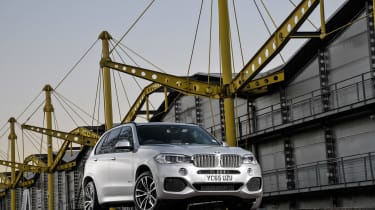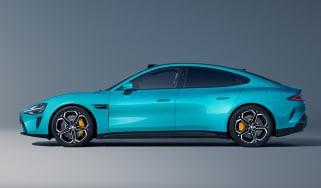BMW X5 (2013-2018) review - bulky but very capable - BMW X5 MPG and running costs
Good to drive and practical, but the X5's ever-increasing size counts against it in a few areas
Although the sDrive25d has been included as a sop to environmental constraints, it’s hardly miles ahead of the six-pot/all-wheel drive X5s. Optional, larger wheels throughout the X5 range adversely affect economy on all models, but at its best, the sDrive25d will return 53.3mpg and 139g/km. Adding 45kg and drive to the rear wheels, the xDrive25d’s best numbers are 50.4mpg and 146g/km.
The six-cylinder units, apart from the M50d, are so close to the four-cylinder 25d that we can’t see the point of opting for the base X5 if you’re a private buyer. The xDrive30d can turn in 47.9mpg and 156g/km, while the xDrive40d isn’t far off that at 47.1mpg and 157g/km.
The two quickest X5s start to hit the wallet harder, with the M50d worsening to 42.8mpg and 173g/km, and the xDrive50i way off at 29.1mpg and 226g/km.
Most frugal in the entire X5 range is again the plug-in hybrid model, known as the xDrive40e. Don't expect to meet its official figures if you tend to stick to motorway driving, but the bare numbers are a combined 83.1mpg, with CO2 of 78g/km. That's not as parsimonious as the smaller plug-in hybrids in BMW's range, but it's not bad for an SUV as hefty as the X5.
As we said, choose your wheels wisely: smaller alloys on the sDrive25d allow it to sneak into VED Band F (£145 per annum instead of £180) and going large on the xDrive50i can push it from Band K (£640 year one, £290 thereafter) out to Band L (£870/£490).
The X5 is covered by BMW’s standard three-year/unlimited mileage warranty and Service Inclusive packs are offered to keep maintenance costs under control. The biggest BMW SUV is expected to have strong residual values, comparable to the Range Rover Sport.



